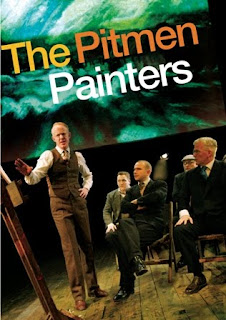There has been much chatter about Baroness Buscombe's comments on
Ian Burrell's Blog regarding the PCC and regulation of blogs.
She is quoted as saying the PCC should "consider" whether the PCC should seek to extend its remit to the blogosphere (Burrell's quotation marks intact there, just on the word consider).
I don't know just how seriously this has been considered by the Press Complaints Commission. But those who think it has any likelihood of becoming a reality misunderstand just what PCC is and also cannot really understand the nature of blogging and the internet.
To appreciate what is onvolved you have to go back to the birth of the PCC. This was the late '80s early '90s, there was a widely-held beliefe among some politicians that the press, particularly the then tabloid press, was out of control. David Mellor, minister of state for culture memorably said that the press were 'drinking in the last-chance saloon.'
There had been a circulation war raging between The Sun, Daily Mirror and The Star and the tactics employed to outdo one another gave ammunition to those who believed there needed to be statutory regulation of the press.
The then regulatory body - The Press Council - had been discredited, its adjudications ignored by papers, and even attacked in print by the same papers. It was seen as offering little or no protection to those who found themselves in the pages of the papers.
The Calcutt Committee of Privacy, in its report to Parliament, stopped short of recommending statutory regulation of the press and its recommendations were accepted - self-regulation was to be given a last chance.
So how does this relate to bloggers? Well, if you look back at when the PCC was established there was a political will supporting its establishment and remit - indeed many wanted to go further and have it on a statutory basis. There was a demand for what it was going to do.
Where is the demand, political or public, for the regulation of bloggers by the PCC?
Of course, it might be coming from some quarters of the newspaper industry who see bloggers breaking stories and doing things they think they can't. But as for politicians or the public - nothing of any note. The idea that any politician is going to alienate 10m plus bloggers by putting the PCC in as their overseer is ludicrous.
Furthermore, the PCC is a self-regulatory body, not statutory. Bloggers would have to sign up to be regulated by it and I can't see that happening any time soon.
To be imposed upon bloggers it would have to be put on some sort of statutory footing (cue squeals of outrage from the newspaper industry who would fight that tooth and nail) And they would have a very hard time making the logical case for statutory regulation of bloggers whil retaining self-regulation of newspapers.
But just how would it impose its will upon something as mercurial as the blogosphere?Overseas hosting would mean evasion of its clutches would be a simple matter. Blogs would spring up and disappear before any adjudication could be made, no matter how
'fast free and fair' it might be.
Also, what makes the PCC think it has the capacity to govern so large and diverse a group as bloggers?
If they think they can do it, they'd better start recruiting now.
